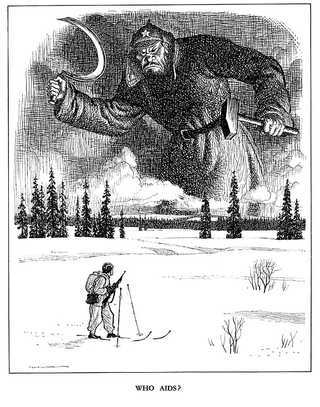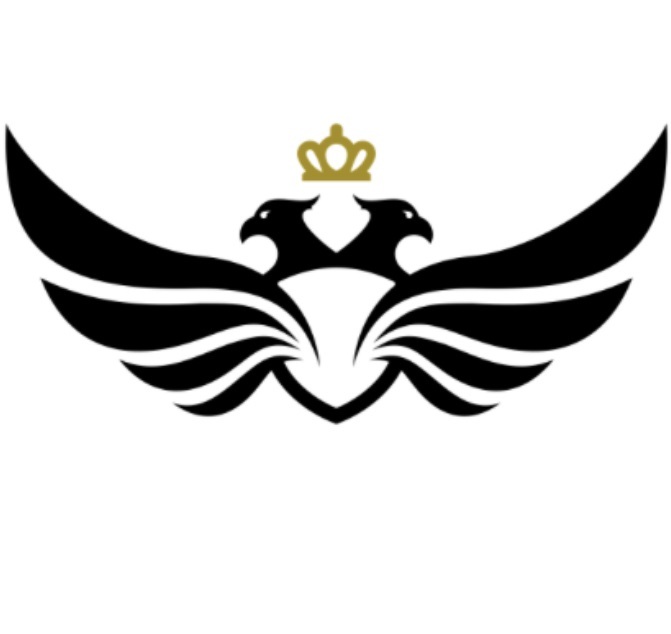WHY DO BRITAINS HATE RUSSIA AND RUSSIANS?
The question of why the UK hates Russia and Russians keeps coming up in the Duran in one form or another This hatred is strikingly incongruous with the fact that Russia has never attacked the British Isles and has been and Ally of Britain in two world wars. In this article I examine why Britain in particular has this attitude and conclude it is the product of anti Russian propaganda alone and from this it is not too hard a point to say it is irrational.
The anxiety of the Europeans about Russian regional hegemony is quite extraordinary case of projection. Russia since the break up of the USSR has been keen to join Europe and wanted to become part of NATO. If the Russian attitude has changed and there is no real evidence it has, any attitude change has been caused by the hatred key European leaders have articulated against Russia. This hatred stems from the sense of superiority that the French and the British and to a lesser extent Germans have with respect to Russia and Russians. The British are the greatest Russian haters, but why?
First a small anecdote. My mother was a Londoner, who lived in what was then middle class Dagenham. She was bombed by the Germans in WWII. The Germans dropped bombs on them accidentally because they were on the flight path to an industrial complex. She spent many nights in their Anderson shelter. A house a couple of doors down from was hit, but no one died.
She immigrated from London to Australia with my father and ended up in Yallourn about 100 miles east of Melbourne. My mother didn't like Germans, for obvious reasons, but her dislike of Germans was nothing compared to her disdain and hatred of a Russian couple who had also immigrated to Australia after the war and who lived behind us. As kids we took the Russian couple as we found them. They were nice to us and didn't seem to cause any harm. I could never understand why my mother hated them, it was weird. They were probably the only Russians she had ever met, because Dagenham was 100% white British in the forties. and very early fifties. Looking back on it now I can only think her disdain for Russians in spite of the fact they won the war was deeply ingrained through the propaganda perpetrated by the British elites.
Of course this evidence of a deep seated hated or at least great dislike of Russians by the British in only anecdotal, but it does hint at some underlying British pathology. It seems to me that out of the Three Stooges, France Britain and Germany it is the British who are the main haters of Russians and it doesn't surprise me.
I suspected that it was the propaganda perpetrated by the British elites on the British public to get them to join the Crimean war with the French under Napoleon, with France being the principle protagonists. My hypothesis is that the Crimean war propaganda was the initial source of Russian antipathy of the British population, but this requires evidence. As I am seventy and did not relish the thought and expense of research in into the matter I turned to my friend at Deepseek and found the following.
The propaganda was substantial and included:
1. Exploiting Anti-Russian Sentiment & National Pride
• Russia was portrayed as an aggressive, expansionist threat to British interests, particularly in the Near East and India (the "Great Game" ).
• The British press and politicians framed the war as a defense of Christian Europe against Russian Orthodox encroachment on the Ottoman Empire (which was Muslim but seen as a weaker power needing protection).
• "Defending British Honor": The government argued that Russia’s actions in the Danubian Principalities (modern Romania) and the Black Sea were a challenge to British global dominance.
2. The "Eastern Question" & Protecting the Ottoman Empire
• British leaders, including Prime Minister Lord Aberdeen and later Lord Palmerston, claimed that if Russia conquered Ottoman lands, it would disrupt the balance of power in Europe.
• Economic interests were at stake—Britain relied on Ottoman trade routes and feared Russian control of the Bosphorus and Dardanelles straits.
3. Media & Propaganda Campaigns
• Newspapers like The Times and The Illustrated London News published sensational stories about Russian atrocities and the need to protect "civilization."
• War correspondents (like William Howard Russell) sent back vivid, often exaggerated reports from the front, shaping public opinion.
• Cartoons and pamphlets depicted Tsar Nicholas I as a tyrannical aggressor, reinforcing anti-Russian sentiment.
4. Religious & Moral Justifications
• The war was framed as a crusade to protect Christians under Ottoman rule (despite Britain allying with a Muslim empire).
• Claims that Russia was persecuting Protestants and Catholics in the region were used to rally support.
5. Political Manipulation & Palmerston’s Leadership
• Lord Palmerston, a hawkish politician, pushed for war even when the government was divided.
• When the war initially went badly (e.g., the Charge of the Light Brigade, disease in camps), the government shifted blame to military incompetence rather than admitting the war was flawed.
• After Palmerston became Prime Minister (1855), he intensified the war effort, promising victory and boosting morale.
6. Public Outrage Over Specific Incidents
• The "Massacre of Sinope" (1853), where Russia destroyed an Ottoman fleet, was spun as a brutal act that demanded British retaliation.
• Reports of poor conditions for British soldiers (leading to Florence Nightingale’s nursing reforms) were used to argue that Britain must fight harder rather than withdraw.
Result: War Fever & Later Disillusionment
• Initially, the British public largely supported the war due to these tactics.
• However, as the war dragged on with heavy casualties from disease and poor leadership, public opinion shifted, leading to criticism and reforms after the war.
The Crimean War marked one of the first conflicts where media, propaganda, and public opinion played a decisive role in Britain’s involvement.
I asked Deepseek what sources it used and it came up with the following list:
The British government's use of propaganda and public persuasion during the Crimean War (1853–1856) has been studied by historians using primary sources like newspapers, political speeches, cartoons, and archival documents. Below are key references and scholarly works that discuss how Britain justified the war to its people:
Primary Sources & Contemporary Accounts
1. Newspapers & Periodicals
o The Times (London) – William Howard Russell’s war reports shaped public opinion.
o The Illustrated London News – Used engravings and visuals to dramatize the war.
o Punch magazine – Satirical cartoons depicting Russia as a bear and Tsar Nicholas I as a tyrant.
2. Political Speeches & Pamphlets
o Lord Palmerston’s speeches in Parliament (e.g., his 1855 premiership address).
o John Bright’s anti-war speeches (showing dissent within Britain).
o Government Blue Books (official diplomatic correspondence justifying intervention).
3. Soldiers’ Letters & Memoirs
o Accounts from British officers and nurses (e.g., Florence Nightingale’s letters).
Secondary Sources (Academic Books & Articles)
4. General Histories of the Crimean War
o Orlando Figes, The Crimean War: A History (2010) – Discusses British propaganda and public opinion.
o Andrew Lambert, The Crimean War: British Grand Strategy Against Russia, 1853–56 (1990) – Analyzes government motives.
o Trevor Royle, Crimea: The Great Crimean War, 1854–1856 (1999) – Covers media influence.
5. Media & Propaganda Studies
o Stefan Goebel, The Great War and Medieval Memory (2007) – Compares Crimean War propaganda with later wars.
o John M. MacKenzie, Propaganda and Empire (1984) – Though focused on later imperialism, it references earlier precedents.
o J.B. Conacher, The Aberdeen Coalition, 1852–1855 (1968) – Examines political debates over war justification.
6. Cultural & Visual Propaganda
o Peter Harrington, British Artists and War: The Face of Battle in Paintings and Prints (1993) – Covers Crimean War art.
o Ulrike Kirchberger, Aspekte deutsch-britischer Expansion (1999) – Discusses British Russophobia in propaganda.
Key Themes in the Literature
• The role of The Times in shaping war fever through William Howard Russell’s reporting.
• Patriotic cartoons (e.g., Punch’s depictions of Russian barbarism).
• Palmerston’s manipulation of public opinion to sustain support.
• The shift from enthusiasm to disillusionment as war casualties mounted.
As you can see the references are substantial. I followed up on a sample of them and they exist. Although I haven’t read them.
So my hypothesis for propaganda would seem to have some validity.
In addition to the Crimean war the British sent troops to Russia to intervene in the Russian Revolution of 2017. Again the British elites used a massive propaganda campaign using a similar playbook to the Crimean campaign, adjusted for the new circumstances. For example they demonized the Bolsheviks, and claimed they had to stop the revolution to keep Russia in the war, (WWI) etc.
After WWII the perceived communist menace of the Soviets whom the British saw wholly as Russians, resulted in the continuation of the same virulent anti Russian propaganda. So although Russia has never attacked the UK, the British people have been the subject of constant unremitting negative Russian propaganda for at least one hundred and seventy two years, from the Crimean War until now. That time represents six generations of the British. I therefore conclude that the hatred and suspicion with which the British population and the British elites hold of Russia is most certainly due wholly to propaganda and has no basis in any material impact of Russian actions on the UK itself. The fact that Britain lost the Crimean war was a factor, but more in terms of how losers blame the victors atrocities real or imagined, which makes for an even more bitter and more strident in their anti-Russian sentiments and propaganda.
Students or irony will appreciate how the British praised Joseph Goebbels' use of propaganda in the second world war. In fact Goebbels leaned it from the Americans, Edward Bernaise, Lippmann, Wilson and Creel et al , who in turn saw how the British did Propaganda.
Another interesting fact is that George Orwell, an Englishman in a proposed preface to Animal Farm described in detail how the mass media of democracies is used for propaganda and how insidious it is. The preface was never published for obvious reasons and was discovered in the authors papers after his death. So the British establishment were quite happy for Orwell to publish a book on the "crimes" and propaganda of the Soviets, but they didn't want Orwell pointing out that the British establishment used the precisely the same tools of propaganda that Lenin and Stalin used.
You can read the preface here it here:
https://www.marxists.org/archive/orwell/1945/preface.htm




















